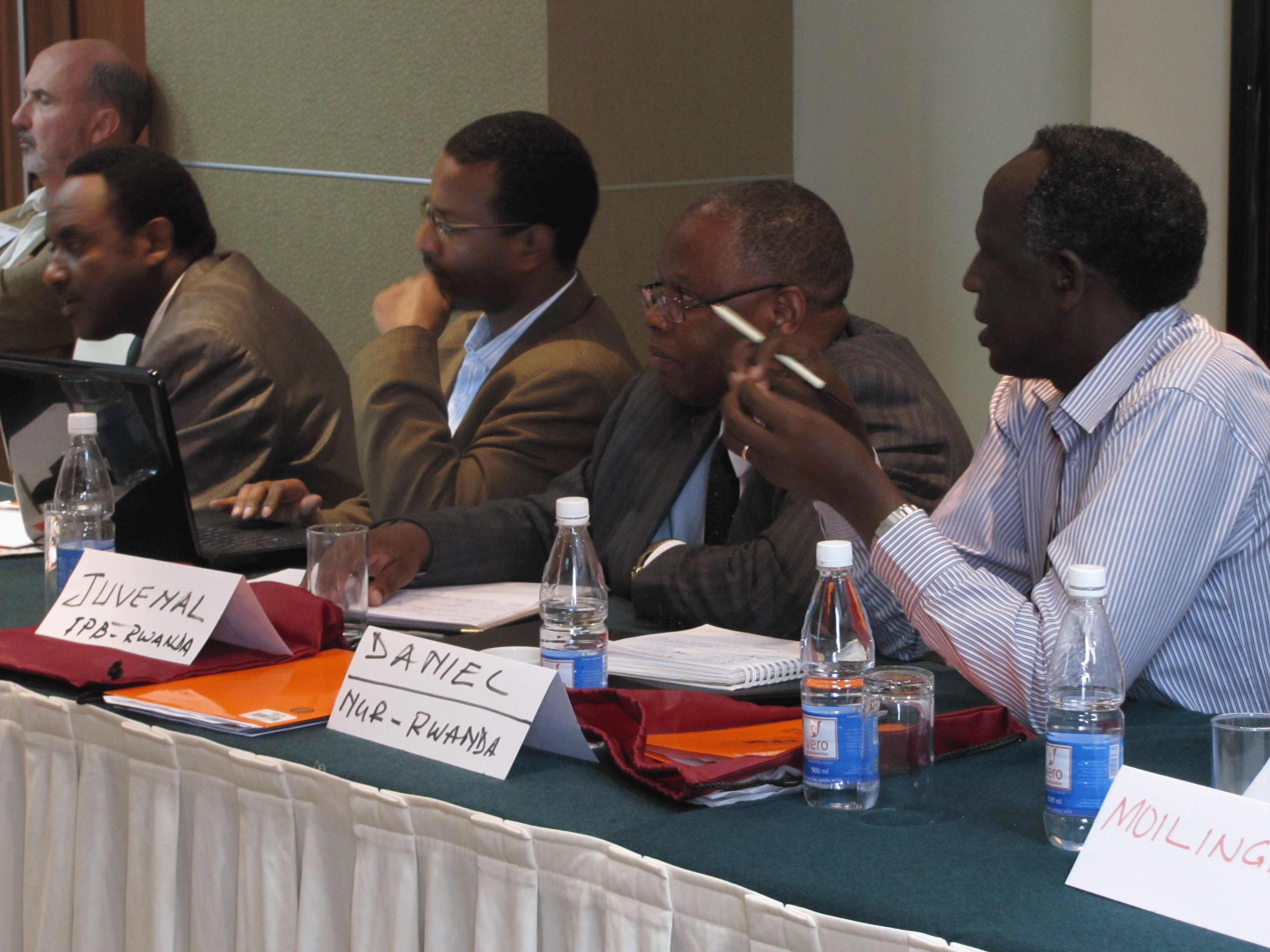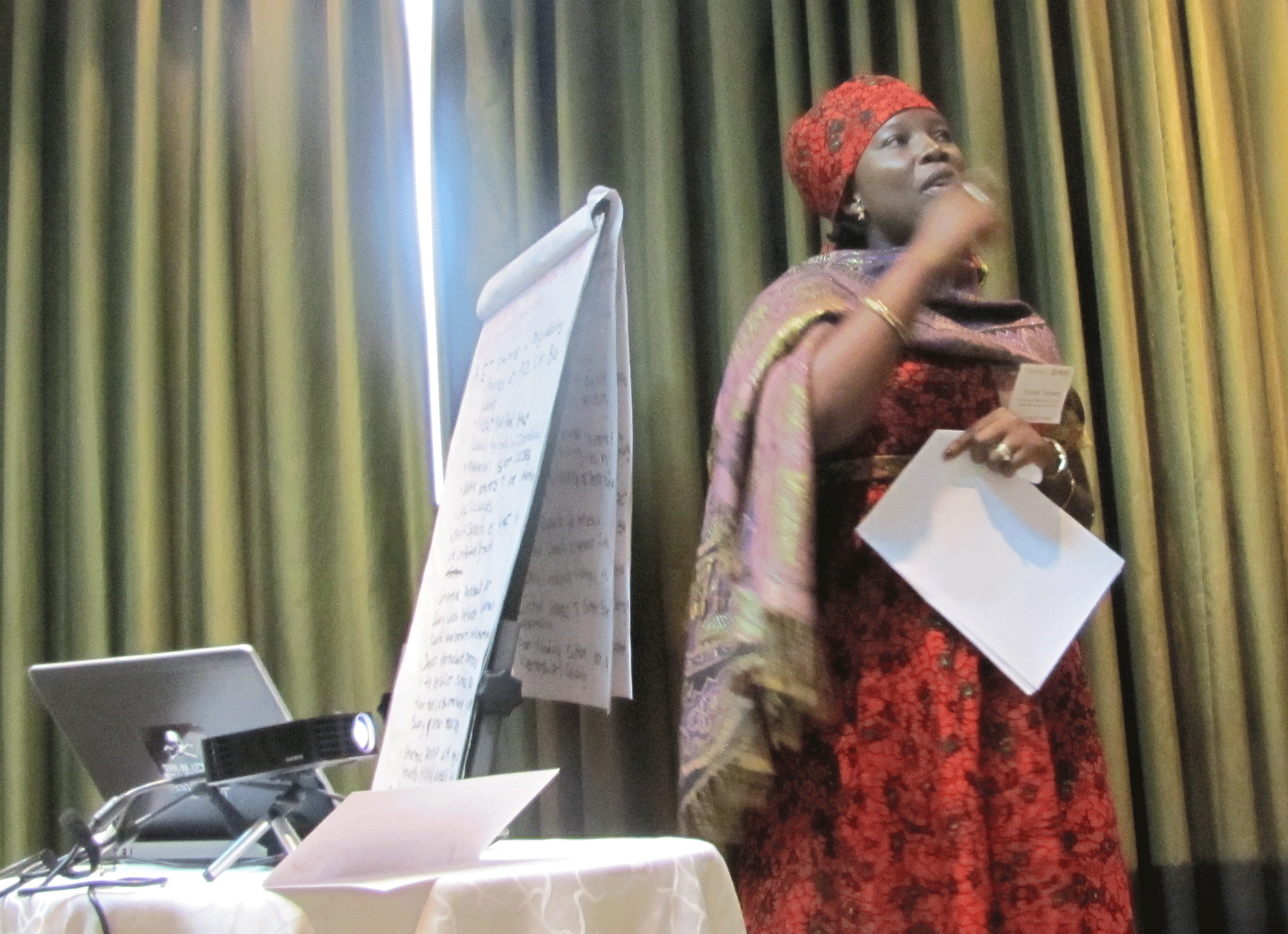Article by Wangui Gichane
According to the Center on Conflict, Security and Development, 1 in every 4 people worldwide today—more than 1.5 billion people—live in fragile and conflict affected situations, and only 20 percent of conflict affected countries are expected to achieve the goal of reducing hunger and poverty by half by 2015. On August 20-22, two Virginia Tech-funded programs hosted a regional workshop in Kampala, Uganda on agricultural capacity building in post-conflict countries. Workshop participants shared their experiences in agricultural education and training development work in South Sudan and Sub-Saharan Africa.
The 20 regional workshop participants represented countries such as Uganda, Liberia, Kenya, Burkina Faso, Ghana, Rwanda and South Sudan. Many African nations, such as South Sudan, have emerged from some type of conflict and are considered “post-conflict” states. These post-conflict countries are defined as states that are not necessarily stable, but in which open violence and fighting have come to an end. They often face a high possibility of falling back into conflict if they lack stable institutions capable of ensuring long-term security.
The Virginia Tech-managed and USAID-funded Innovation for Agricultural and Education (InnovATE) project and Rebuilding Higher Education in Agriculture: South Sudan (RHEA) project, in partnership with Team Africa and World Bank, conducted the workshop in order to produce guidelines for agricultural professionals working in post-conflict environments. Conflict in these regions often results in severe damage to the agricultural sector due to the displacement and disruption of civilians’ agrarian livelihoods. Because many of these nations’ economies are driven by agriculture, restoring the agricultural sector through agricultural education and training is the first and most important step in rebuilding efforts.
Unfortunately, one of the key problems facing many of these countries is that they lack adequate agricultural education and training programs to begin with. Governments in these countries often don’t provide farmers and students with enough incentives to enter the agricultural sector, and limit training and education devoted to this sector. Since agriculture is the main driver for recovery and growth, the problem often faced by these countries is how to re-establish and maintain it.
In Kampala, the consensus from the participants was that the main challenges facing agricultural education and training in these nations are infrastructure damage in schools and facilities, the “brain drain” dilemma that occurs when all the trained and highly skilled professionals and educators in agriculture emigrate to areas and regions that are less volatile to conflict, and the lack of current and updated teaching methods and technologies.
Tom Hammett, director of innovATE, stated, “The workshop served as a way to gather information to combat the challenges faced after being severely affected by war or civil unrest. We must prioritize the development of agricultural education and training capacity in these countries.”
The workshop also aimed to generate dialogue regarding different approaches to building agricultural education and training capacity and to lay the necessary foundations for countries trying to rebuild agriculture in higher education. Using regional and country studies to provoke discussion and interaction, the participants produced 10 guidelines and topics that included good practices in conflict-affected areas. Of the 10 topics, innovations for agriculture and technology had the highest priority, followed by a need to develop agricultural education and training curriculums that could flexibly address emerging issues. Other topics which were ranked as high priorities by students included studying human resource capacity gaps and gender-related impacts on conflict.
InnovATE used the post-conflict workshop as a platform for the innovATE symposium held September 18-20 in Fairfax, Virginia. The workshop results will also be used to develop strategies for rebuilding the agricultural education sector in South Sudan and to create guidelines and priorities for what the program should work on in the coming years. “It was interesting to meet new people from these regions and learn of the constraints these post-conflict countries faced,” Hammett concluded, “but it was also exciting to see the optimism and spirit these people all had for the future.”



